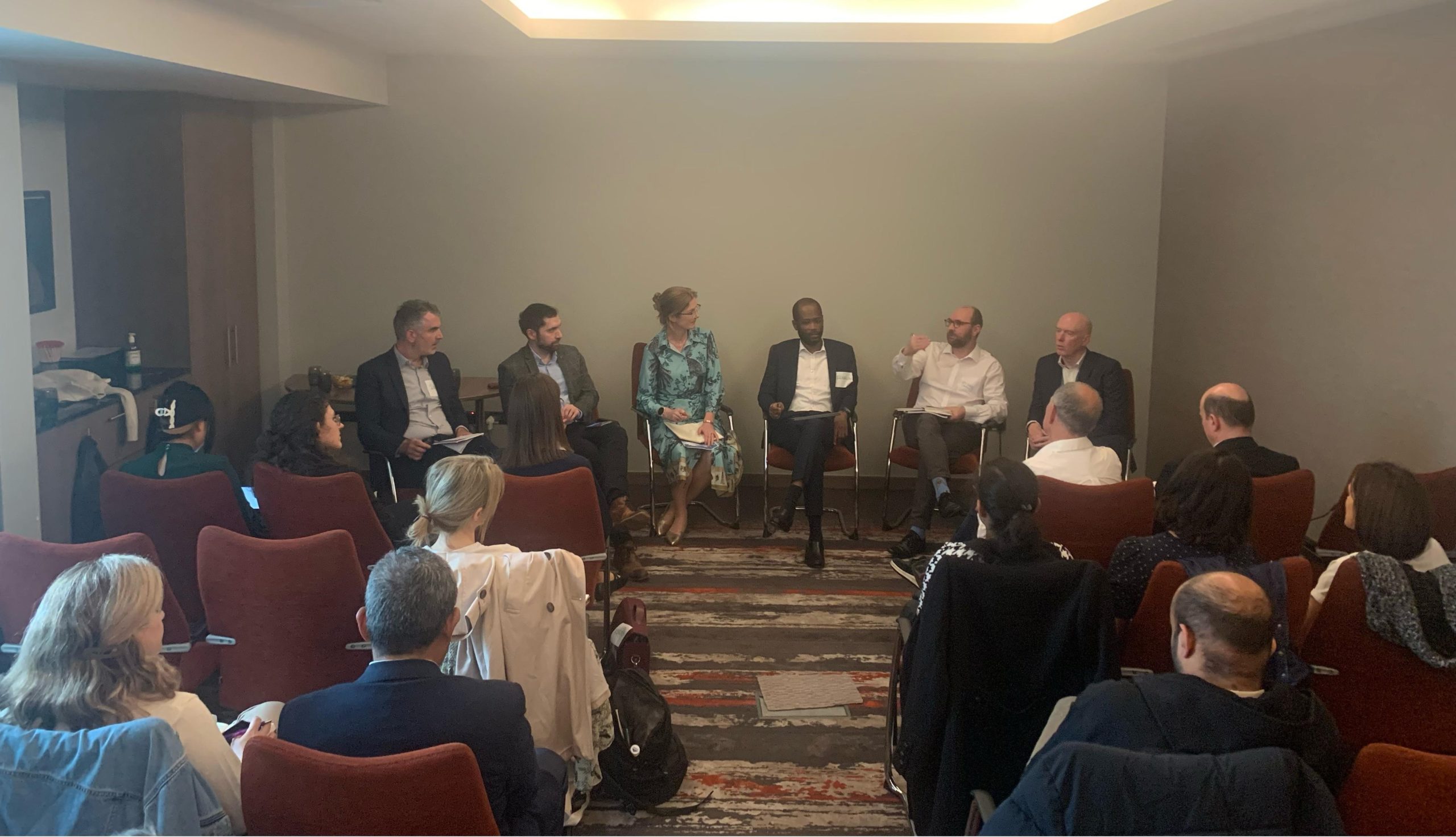You are here: Home > News & Events > Academic Research Key to Clearing the “Fog” of Energy Transition
Academic Research Key to Clearing the “Fog” of Energy Transition
- 30 April 2025
- Topics: Energy and renewables
- Types: News

Energy Transition Policy Panel: Daire McCoy (Ofgem), Niall Farrell (ESRI), Lisa Ryan (Chair, UCD), Franklin Amuakwa-Mensah (EfD), Cathal FitzGerald (NESC), and Fergal McParland (DECC)
Researchers in higher education institutes can address the knowledge gaps identified by NESC in Ireland’s energy transition policy. This was a key message delivered by Dr Cathal FitzGerald, Senior Analyst, to a UCD workshop this week on ‘Economics of the Global Energy Transition: Policy-Relevant Research for Evidence-Based Policy’.
“The Council has found that much of Ireland’s policy action for transition in the power sector is headed into fog. Visibility and certainty are low, and key actors are not on the same page from a strategic standpoint,” Dr FitzGerald said, “but researchers in our higher education institutes can help guide the way.”
In its recent report Ireland’s Future Power System and Economic Resilience, NESC stated that to move from the status quo to near-term targets and towards domestic net zero, the State must have the capacity to harness frontline knowledge as well as evidence from the research community. The State must live with uncertainty yet also act now to provide a more clearly defined and articulated agreed strategic path for the planned energy transition. The Council has identified ten key research gaps to begin with in this regard (see below).
Addressing the workshop, Dr FitzGerald said that in its response to the NESC report, the Government had announced new institutional arrangements to accelerate progress on Ireland’s energy transition, and the academic community must involve itself in and inform these developments.
“Our report says that to mitigate uncertainty, new institutional arrangements should identify and name outstanding evidence and data gaps as a guide to Ireland’s research community, including in the higher-education sector, to maximise their contribution to policymaking,” he said. “The Council has stated that it is important to recognise the vast scope of research work already underway, and the crucial contribution the academic and other research communities are making today. They must be equipped, ready, and able to do more,” Dr FitzGerald concluded.
This workshop was arranged by the UCD School of Economics and brought together academics and practitioners in energy economics and policy to explore pressing topics related to the global energy transition. With contributions spanning both the Global North and South, the workshop aimed to bridge the gap between research and real-world policymaking, foster knowledge exchange, and create space for future collaboration.
Read the full Council report here.
The Council identified key research gaps. To begin with, action is needed on the following:
- A detailed model for capacity expansion for Ireland. The model should set out the logical, evidence-based staging posts and other parameters of a successful transition; the progress to be completed by those staging posts; and the roles, responsibilities and expected outcomes from all those with responsibility for delivering the various elements of the shared plan. Rather than starting with an end-goal target for capacity (e.g. 37 GW of offshore wind), the model should detail the path, from existing renewable power generation capacity to an agreed midpoint on the way to domestic net zero, and if viable and valuable, on to surplus production. Adjustments can be expected along the way.
- Assessment of the specific energy capacity required to achieve domestic net zero, and when this is to be achieved, whereby Ireland’s power demand is met via renewable sources, to the maximum that is feasible, and where greenhouse-gas emissions are balanced or exceeded by the removal of greenhouse gases.
- Detailed consideration of the optimal use of any surplus energy, including (but not limited to) creating and serving new industrial opportunities in advanced manufacturing and in traditional sectors which require significant quantities of power, and the potential export of energy.
- A single, internally consistent and coherent forecast of power generation, demand, interconnection, reliability and capacity adequacy.
- A detailed, evidence-based profile of expected energy supply reliability across the transition timeline.
- Examination of whether Loss of Load Expectation (LOLE) remains an appropriate metric for capacity adequacy in Ireland. Informed by recent work in the UK, further develop the theoretical framework for a new metric (or combination of metrics) of reliability.
- Widely accepted, standardised technology cost comparison metrics and data to better inform policy considerations and action.
- Irish data comparing the levelised cost of renewable power versus conventional energy sources, and a new measure to capture the full system costs of delivering power to consumers, the cost of ensuring the reliability of intermittent renewable sources, energy storage and backup costs, and other important costs not captured by the Levelised Cost of Energy (LCOE) measure.
- A single source of verified data on planning and regulatory process efficiency, accepted by industry and authorities, to inform policymaking.
- Research which provides clarity and certainty on the path of expected full system costs and related competitiveness impacts over the short, medium and long term.


